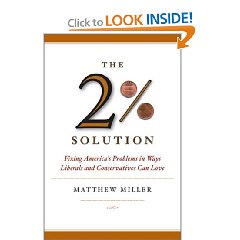New Comment: the author was ahead of his time. See new links below.
The book is worth buying for the Preface and Introduction alone. The rest of the book is a somewhat irritating replay of every column the author has ever written, and not nearly as well done or as riveting as, say, Tom Friedman's replays in “Longitudes & Attitudes”. However, if you have not read the author's columns, his bite-size descriptions of irrational exuberance, crony capitalism, the failure of the Federal Reserve, fuzzy math, how markets go bad, and global spoilage, then they are all certainly worth browsing.
The Preface has three core ideas: 1) the elites are ruling badly and not beneficially for the majority of the population including all the voters and most of the stockholders; 2) politicians and corporation chiefs are getting away with blatant lies to the public because of a media that avoids critical inquiry; and 3) open sources of information–all that lies in the public domain–are more than adequate for anyone to get a grip on reality.
The Introduction is a bit scarier and more pointed. The author joins Mark Hertsgaard, author of The Eagle's Shadow: Why America Fascinates and Infuriates the World in suggesting that the radical right is creating nothing less than a Reichstag in America. In the author's view, and he quotes Kissinger in chilling terms, the radical right is a revolutionary power that is very deliberately and with malice at all times, rejecting and undermining the democratic rules of the game. In the author's words, the radical right is “a movement whose leaders do not accept the legitimacy of our current political system.” The author goes so far as to suggest that the radical right considers elections as “only a formality” and that they will do anything–including subversion of the Constitution–to “win” those elections and reap the domestic and foreign “looting rights.”
Disclosure: I used to be a conservative Republican and used to think such ideas were simply over the top. I have been radicalized by the last 200 books I have read (and reviewed on Amazon) and I have to say, while the third of the nation that is close-minded and ideologically-blindered on the right may give the author short shrift, the other two thirds–the drop-outs and splinter parties, and the failing Democrats–they should take Krugman very seriously. He is an economist, teaching at Princeton, not a journalist nor a sensationalist, and in my view, when one combines his book with that of Clyde Prestowitz, a Presbyterian elder and solid Reagan Republican and fiscal conservative (Rogue Nation: American Unilateralism and the Failure of Good Intentions), with that of William Greider, writing on the immorality and social costs of capitalism as we practice it today (The Soul of Capitalism: Opening Paths to a Moral Economy), one can only conclude that the Republic, and that for which it stands, have been hijacked, are being looted, and the American Democratic experiment is on very thin ice.
The index to this book is helpful in running down specific individuals, corporation, and organizations that have committed crimes against the Nation that the author has addressed in his many columns for the New York Times, as repeated in this book.
See also:
The Battle for the Soul of Capitalism: How the Financial System Underminded Social Ideals, Damaged Trust in the Markets, Robbed Investors of Trillions – and What to Do About It
Vice: Dick Cheney and the Hijacking of the American Presidency
Running on Empty: How the Democratic and Republican Parties Are Bankrupting Our Future and What Americans Can Do About It
The Global Class War: How America's Bipartisan Elite Lost Our Future – and What It Will Take to Win It Back
Day of Reckoning: How Hubris, Ideology, and Greed Are Tearing America Apart










